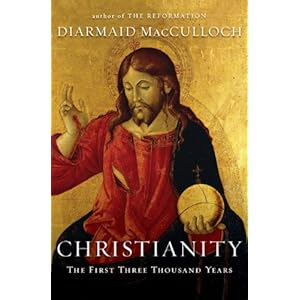Armstrong is no friend to ignorance, so anyone investigating the perrenial question of 'God' had better come to this volume with an open mind to learn, or an already firm grasp of the issues attending the monotheistic religions and their notions of God. This is not to say that Armstrong has written a compendium of arcana, or some arid piece of abstracted academia. It does mean, however, that she has taken an angle not popular to the usual considerations of religious history.
More specifically, Armstrong's work on the Judeo-Christian heritage draws from a particular source theory called the Wellhausen Hypothesis, or the Documentary Hypothesis. Such a theory of biblical origins is minority opinion, absolutely, when contrasted with the classic circles of literal-historical method. Though it isn't without merit, the literal-historical method takes too much advantage of the willingness and (sometimes) unintentional ignorance of the well-meaning believer.
For example, it is clearly the case that there are two different creation accounts in Genesis, but the literal-historical method, while it may recognise this, eventually relies on the willingness of the believer to accept on faith the discrepancies in the biblical narrative. The documentary hypothesis, while not unsympathetic to the demands of faith to believe the claims of the biblical narrative charts, dates, rearranges and makes a fair-minded attempt at explaining oddities in scripture by examining the historical-cultural events attendant to Christian holy writ. Once that is done, the reader has a more thorough working knowledge of what the biblical authors were writing, and how they were communicating age-old stories in new symbols. Granted, literal-historical method includes some of the same rigorous examinations of history and culture, but the difference is usually split between which hermeneutic is going to source evidence to support an already established outcome (literal-historical) and which explanation will review the evidence with an eye to assembling a scientific and irrespective account (documentary hypothesis).
Because Armstrong's account draws on the documentary hypothesis, she is bound to be discarded as 'confused' or 'godless' or what-have-you by the vast majority of Christians. Despite this automatic anethema in the majority Christian world, Armstrong has still managed to pen one of the most dramatically successful historical theology texts in the Western world. And the reason for this is not hard to see.
Certainly the boldly ambitious title A History of God claims people's attention right away. But more, the gentle eloquence in Armstrong's recounting of the details of otherwise dead, dusty, and dilapidated eras gives the reader a personal sense of the events she relays. Such an ability to suffuse historical academics with life, light, and occasional nostalgia enlivens the mind to the subject matter, and that is what I personally think owes to the massive success of Armstrong's book.
Alongside Armstrong's easy but penetrating academics, she is not afraid to call a spade a spade. So while she examines the topics at hand, she sees the relevance of addressing contemporary issues that arise out of the mindsets of the religious history being examined. For example, there are very few people in the televised Western world unfamiliar with the cultural tactic of claiming God for partisan motives. Presidents and Primeministers in times of war, call God out as if he were a super-soldier destined to ordain the victory of whoever has enough public pious pomp. Or, as bequeathed to Jews and Christians everywhere, God has culled certain people to himself as a preferred group: the elect. Such notions of holier-than-others, or pre-ordained preferential peoples wins no sympathy from Armstrong. In a memorable quote, she highlights the dangers of such ugly and banal concepts as 'election theology':
The dangers of such theologies of election, which were not qualified by the transcendent perspective of an Isaiah, are clearly shown in the holy wars that have scarred the history of monotheism. Instead of making God a symbol to challenge our prejudice and force us to contemplate our own shortcomings, it can be used to endorse our egotistic hatred and make it absolute. It makes God behave exactly like us, as though he were simply another human being (p. 54-55).
| Whose side is God on? |
Still, Armstrong is not preachy, even if she does drop a pearl of wisdom here-and-there throughout her book. It befits someone of her unusual erudition to address some of the more troubling aspects of humanity's sickly dogmas. And carefully coddled as those admontions are in a lucid recounting of historical religion, nothing is lost in Armstrong's collisions with cheap theologies.



